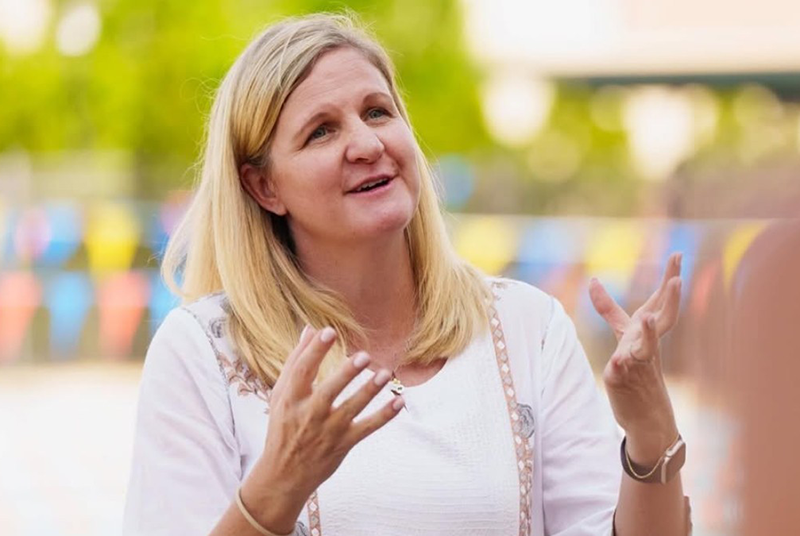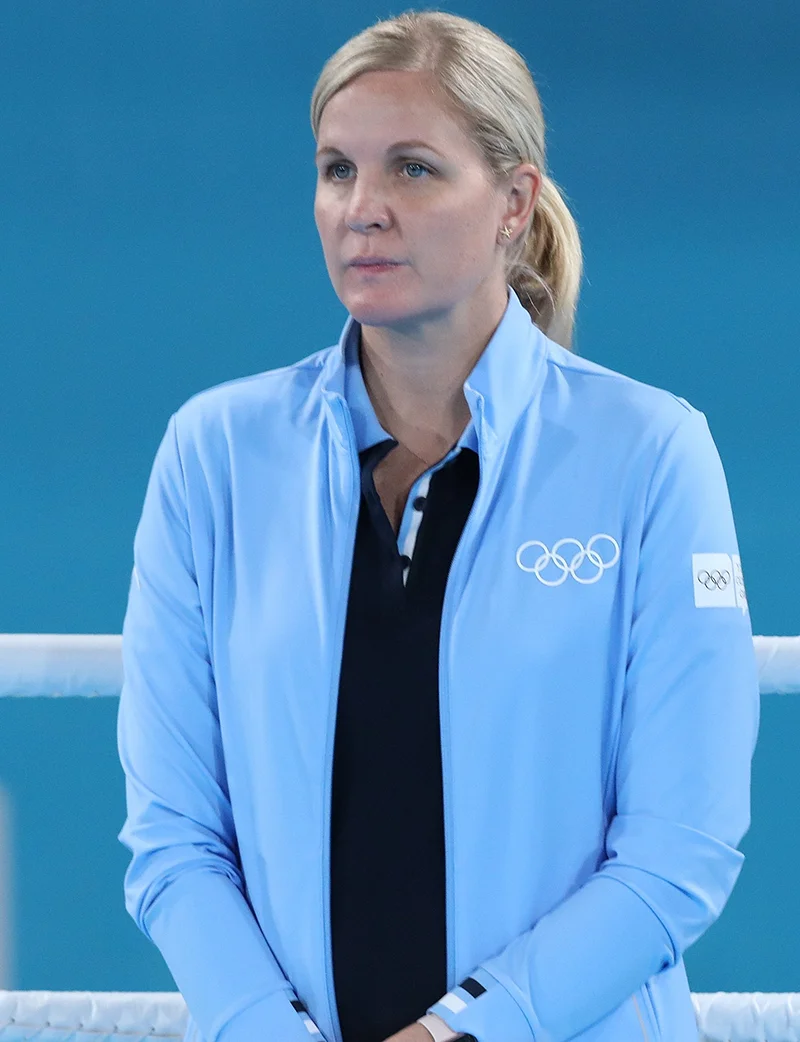- Featured
- No Comment
Kirsty Coventry: Soft face of Zimbabwe’s dictatorship could be next President of the IOC

The International Olympic Committee (IOC) is set to select a new president this week to succeed Thomas Bach. In a field of seven candidates, Zimbabwe’s Kirsty Coventry, Africa’s most decorated Olympian, could make history as the first woman to head the IOC.
However, since becoming Zimbabwe’s sports minister in 2018, Coventry has become a highly controversial political figure, and her election would be a victory for the brutal regime she has become the soft face of.
Coventry is running on a platform of “zero tolerance for corruption … and unethical behavior” and professes a staunch commitment to the IOC’s doctrine of political “neutrality.” But politics were always in the background of Coventry’s life, as she went from a reluctant to a willing central political operator in Zimbabwe’s political landscape.
Hailing from a family of swimmers belonging to Zimbabwe’s white minority, Coventry was born in 1983, during the Gukurahundi genocide, in which Robert Mugabe‘s North Korean-trained Fifth Brigade murdered more than 20,000 “dissidents” in western Zimbabwe.
As a teenager who reached the 100 meter backstroke semifinal at the 2000 Sydney Olympics, she was publicly drawn to comment on Mugabe’s controversial policy of violent expropriation of commercial farms owned by white Zimbabweans.
In 2002, as Zimbabwe suffered isolation from western sanctions, she won the country’s first ever gold medal at the Commonwealth Games. A Zimbabwean newspaper described the political significance of her victory as “a much-needed morale booster” for “a pariah among democratic and civilized countries of the world.”

At the 2004 Olympics in Athens, her three medals catapulted her political significance to the Mugabe government even further as the dictator called her Zimbabwe’s “golden girl” and lavishly feted and rewarded her.
In 2008, Mugabe doubled down on the praise after she won four medals at the Beijing Olympics. “You have done well, daughter of Zimbabwe. She is our golden girl,” he said.
To be fair, Coventry frequently used her voice positively. “President Mugabe knows something needs to change because so many people are hurting,” she said in 2008, during a campaign of terror against the opposition, which left nearly 200 people dead and 36,000 displaced.
After Mugabe handed her $100,000 cash reward on state television – at a time when Zimbabweans suffered hunger as a result of extreme hyperinflation—she announced that she was giving part of the reward to charities.
Ten years later, on August 1, 2018, after the military opened fire and attacked a pro-democracy march, killing at least six people and injuring scores, Coventry joined two other celebrities in a video message calling for peace and unity.
However, Coventry also increasingly leaned into partisan politics. After the military deposed Mugabe in November 2017, and installed his longtime enforcer, Emmerson Mnangagwa, she sent out a tweet welcoming the new dictator.
Less than a year later, in September 2018, she joined his cabinet as minister of youth, sport, arts, and recreation. This was on the heels of a disputed election that Mnangagwa rigged amid repression, and observers interpreted her appointment as a strategic political move by Mnangagwa to leverage her popularity to improve his image, win back young urban voters, and repair relations with Zimbabwe’s white community.
In January 2019, after the regime killed at least 12 people during protests against fuel price hikes, Coventry unequivocally rejected calls to resign. In October 2019, she was spotted in a political event organized by the first lady to campaign against international sanctions against the regime.
In December 2019, she attended a ruling party conference wearing party regalia. By June 2020, she was embroiled in a scandal for receiving a prized piece of farmland that Mugabe expropriated to hand to his nephew. The land was understood as a reward for her silence and loyalty to Mnangagwa.
After Mnangagwa rigged the 2023 elections to claim a second term, he reappointed Coventry as minister, despite widespread criticism of her performance, including from the ruling party youth.
Critics have blamed her handling of an18-month FIFA ban on Zimbabwe, failures to significantly improve and expand deteriorating sports infrastructure, as well as the decline of professional football and boxing, amid other sports.
In February 2024, Zimbabwe’s Ultimate Fighting Championship athlete Themba Gorimbo called Coventry “the worst sports minister ever.”
Despite the overwhelming criticism and controversies, Mnangagwa has repeatedly defended and even praised Coventry. In May 2024, they were even seen dancing alongside each other at a public event in which the dictator asserted Zimbabwe’s intention to compete for the hosting rights of the 2027 Cricket World Cup.
As a candidate for the IOC presidency, Coventry has insisted that stakeholders “must adhere to the highest ethical standards to safeguard the spirit of the Games.”
But she cannot possibly demand and uphold such standards when her own conduct in recent years falls short. Her poor performance as Zimbabwe’s sports minister and her leaning into the role of the soft face of Zimbabwe’s brutal regime should disqualify her to lead the Olympics.
Mohamed Keita is the Africa Senior Policy Officer at the Human Rights Foundation (HRF).
